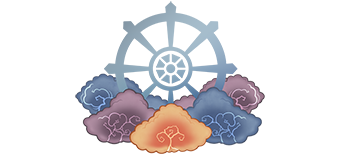Blog: Interdependence
Blog: Interdependence
By Isa Gucciardi, Ph.D.
In a recent podcast, Robert Thurman, noted Buddhist scholar, asked, “What would you do if you realized that you would never be able to get off the subway car you were on this morning – that you were going to be with those people for infinity?” For one thing, it would probably change the way we viewed those people. If we are all in a subway car together cruising through eternity, it would probably be a good idea to figure out how to get along.
I have spent many years trying to help people figure out how to get along with each other through my Depth Hypnosis practice and teaching. Mostly I try to help people figure out how to get along with themselves, because you really can’t get along with anyone else until you have yourself figured out. Unfortunately, it is usually easier to figure out others than it is to figure out yourself. For instance, I can be very helpful guiding others through their relationship conundrums, but am sometimes a slow learner when trying to understand my own.
Fortunately, our relationship troubles with others are excellent vehicles for learning about ourselves, and we don’t have to wait until we have figured ourselves out before we enter into relationship with others. In relationship, each person reveals something to the other. However if an aspect of yourself is revealed that you are not ready or willing to see, problems can arise.
Though relationships are probably one of the most efficient vehicles for the development of awareness and consciousness, most of us do not recognize them for what they are. This is usually because we are trying to avoid or deny our own experience, and so we cannot always see the wisdom relationships offer us.
There are many good reasons for wanting to look away from our experience, but if we cannot tolerate being present with ourselves or with others – and being present with our pain – there is a lot for us to learn. Even our resistance to being present is a powerful teacher.
I encountered a very disturbing bit of data in Sherry Turkle’s new book, Reclaiming Conversation: The Power of Talk in the Digital Age. Average teenagers today would rather have electroshock every six minutes than sit with themselves alone for six minutes. This data point is the tip of the iceberg of an extreme state of being that has become commonplace. It is difficult to stay present long enough with ourselves and with each other to recognize what we are being shown by relating with one another.
Not holding attention or not paying attention is one way to avoid being present with our experience. I often say that people who have been diagnosed with attention problems such as ADHD or ADD need to figure out either what they cannot look at or what they cannot take their attention away from in order to begin to find a way out of the attention problem. But the same advice applies to most people.
It seems like most of us are not paying attention to what our relationships are showing us for a good reason: we don’t want to know. Or, because there is something else we have our eye on – probably patterns established in previous relationships – that is keeping us from focusing on the current relationship.
Let’s look at the first reason for not paying attention: not wanting to know. If we are having a problem, it is probably a good idea to know about it. But often we think we can just look away from a problem and it will go away, or we won’t feel the effect of it if we just don’t pay attention. This can be a dangerous attitude.
For one thing, this attitude is one of the most common entryways into addiction. Many alcoholics I have talked to tell me that their main strategy in drinking is to drink until they can’t feel the thing they are trying to avoid. Somehow, they manage to convince themselves that if they can’t feel the problem anymore, it does not exist.
The cumulative effect of looking away from multiple issues confounds our ability to know what our experience is at any given time. This, of course, makes it difficult to understand what other people’s experience is. We lose clarity in understanding why we form relationships.
The dynamics we experience in relationship become part of a prism of unacknowledged experience that distorts our perception of reality. This makes it difficult to make decisions, set goals, feel a sense of purpose, or know what it is to be in connection with anything around us. This state of being has become commonplace.
What can we do about the state of confusion we find ourselves in? One step on the path back is to become aware of the confusion and distraction we are creating with our effort to not be present. As Ken McLeod points out in Wake Up to Your Life: Discovering the Buddhist Path of Attention, we are not paying attention enough to recognize that we are not paying attention. We have to start by noticing the effect that not paying attention is creating in our lives.

